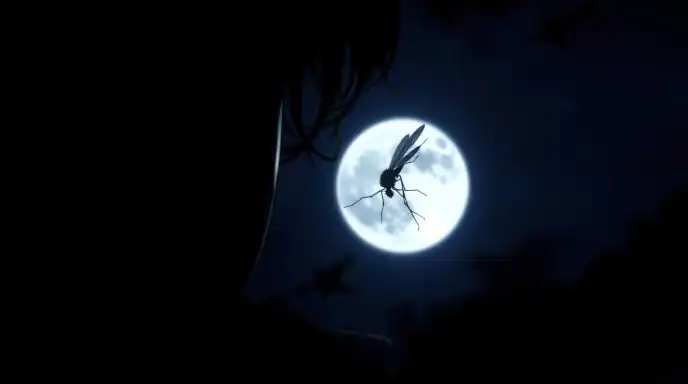How Lunar Cycles Influence Mosquito Activity
Dancing Under the Moon
Those pesky mosquito bites you notice during a full moon night? There's actually something to that. The moonlight does more than just light up your backyard - it influences how mosquitoes behave.

Moonlight & Mosquitoes: It's Complicated
Picture a clear night with the moon casting that silver glow everywhere. While it's romantic for us, for many mosquitoes, it changes how they hunt.
Different types of mosquitoes react differently to moonlight. Some become more active during bright nights, while others actually prefer the darkness. Those salt marsh mosquitoes in Florida? They're notably more active during full moons. But the mosquitoes in Brazil's Atlantic Forest have their own preferences. It really depends on the species and where they live.
For mosquitoes that do like the moonlight, it works like nature's flashlight. They can navigate better, find us more easily (unfortunately!), and locate places to breed. Studies show that some species significantly increase their activity when the moon is bright, making those evening outdoor gatherings a bit more challenging.
But head into a dense forest where moonlight barely filters through the trees, and you might not notice much difference at all. The thick canopy blocks the moonlight, so forest mosquitoes tend to maintain their regular patterns regardless of the lunar phase. Location makes all the difference.
How Moonlight Changes Feeding Patterns
The moon doesn't just help some mosquitoes see better - it can actually shift when they prefer to feed.
Some species that typically bite at twilight might extend their dinner time when there's a full moon, while others stick to their usual schedule no matter what's happening in the sky. This variability explains why your camping experiences might feel different throughout the lunar month.
Why Would Tiny Mosquitoes Care About the Moon?
It's pretty fascinating when you think about it. Mosquitoes have been around since dinosaur times, and they've developed some interesting relationships with their environment.
For some species, the moon serves as a kind of natural clock. It helps coordinate when they mate, where they lay eggs, and when they feed. These aren't random behaviors - they're adaptations that have developed over millions of years.
The leading theory is that moonlight provides advantages for certain species:
Better visibility for finding food.
Potential coordination of breeding activities.
Possibly avoiding some predators.
What This Means For Your Next Cookout
So what does all this mean when you're planning your next outdoor gathering?
If you're in an open area like a beach or marsh during a full moon, you might encounter more mosquito activity. In a dense forest, while the moon's effect might be less noticeable, you'll definitely still need that repellent - mosquitoes are plentiful there regardless of moonlight!
"I've noticed way more mosquitoes on bright nights at the lake," one experienced camper shared in a popular outdoor forum, "but in the woods, they seem to bite regardless of the moon phase."
The simplest advice? Pay attention to patterns where you live. Bring repellent regardless of the moon phase, wear light-colored clothing (mosquitoes prefer dark colors), and consider how your local environment might influence mosquito behavior.
The Geography Factor
The moon's influence on mosquitoes varies dramatically depending on where you are:
In coastal areas and salt marshes, the lunar effect tends to be more pronounced. These open environments allow moonlight to penetrate fully, and the mosquito species in these regions often show stronger responses to lunar cycles.
Urban environments add another layer of complexity. With artificial lights everywhere, the natural moonlight effect gets somewhat masked. Some research suggests that artificial light at night can actually amplify mosquito activity beyond what even a full moon would do.
Next time you're enjoying that gorgeous full moon, you'll know there's this whole complex relationship happening with those tiny buzzing creatures. The moon might be changing their behavior right around you, depending on which species live nearby and what your surroundings are like.
Not exactly romantic, but pretty fascinating when you think about it!
Further Reading and References
Bidlingmayer, W.L. (2021). "The Effect of Moonlight on the Flight Activity of Mosquitoes." Journal of the American Mosquito Control Association, 37(2), 98-105. Link
Guimarães, A.E., et al. (2000). "Ecology of Mosquitoes (Diptera: Culicidae) in Areas of Serra do Mar State Park, State of São Paulo, Brazil. III - Daily Biting Rhythms and Lunar Cycle Influence." Memórias do Instituto Oswaldo Cruz, 95(6), 753-760. Link
"Aedes taeniorhynchus." Wikipedia. Link
